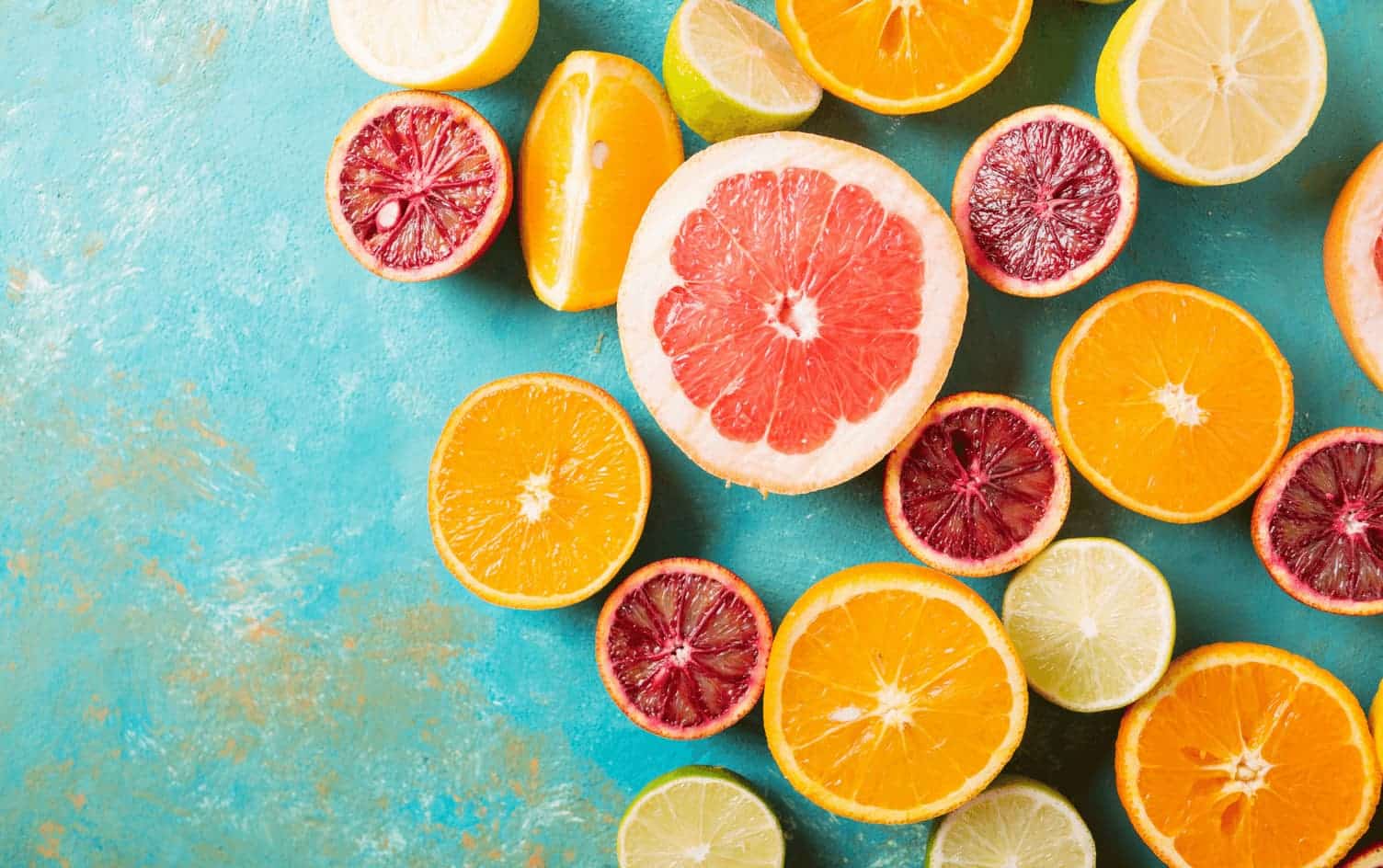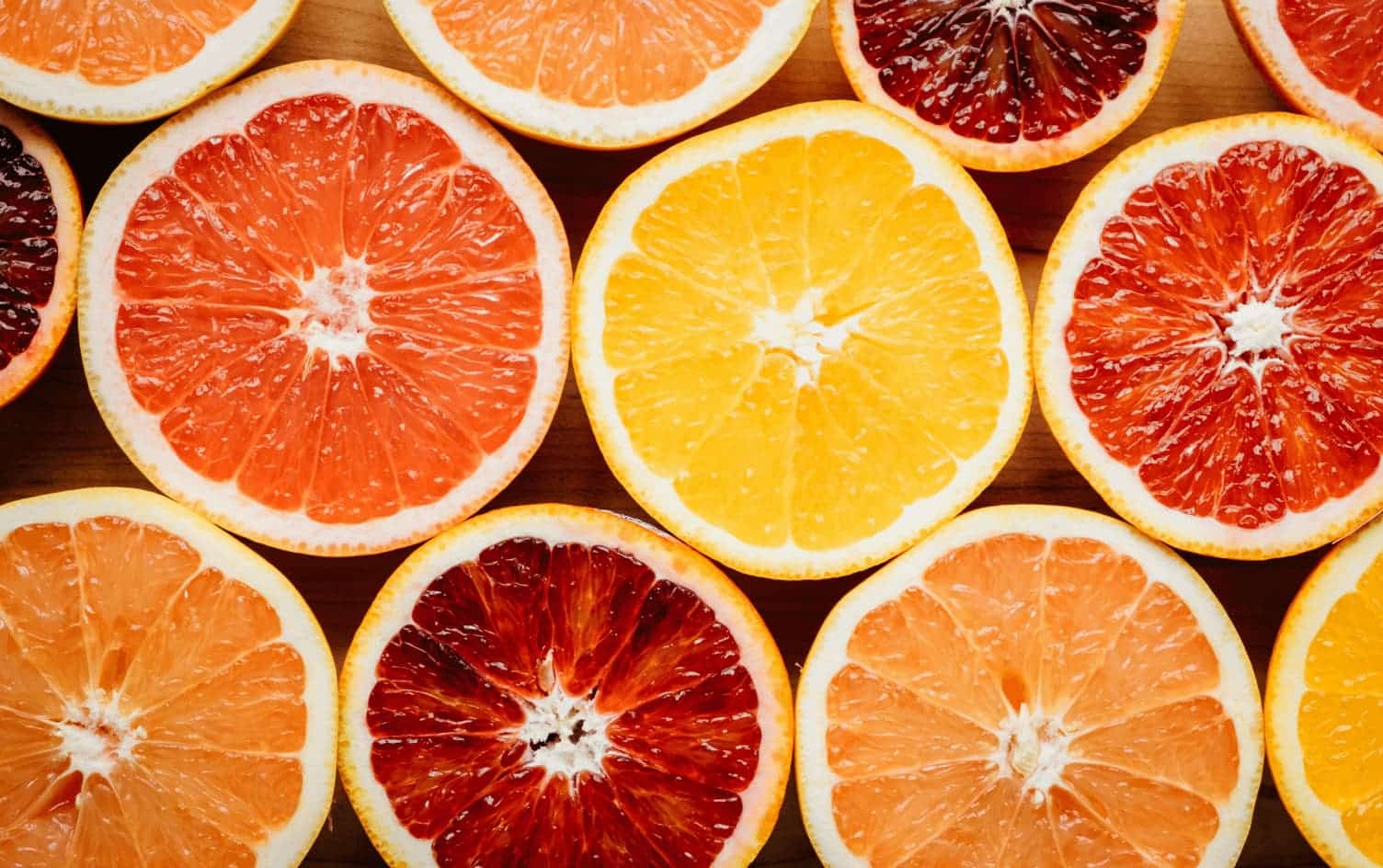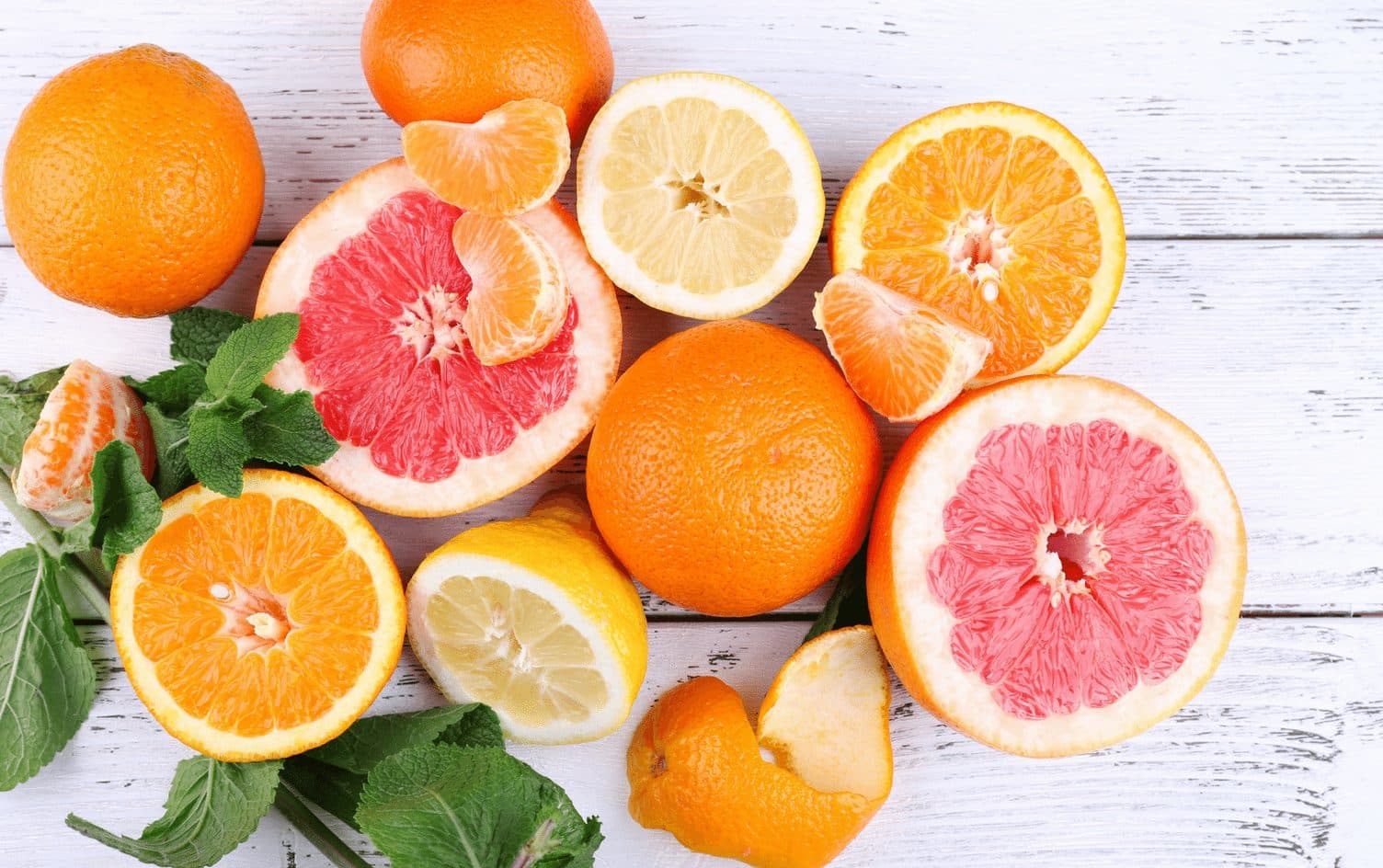Citrus, that delightful family of sweet-tart fruits in a rainbow of jewel-like tones, has long been touted for its abundance of vitamin C. While vitamin C has been linked to shortening the duration of the common cold (it’s never been proven to prevent them, sadly), it’s healthy in more impressive ways than just combating the sniffles.
Here are five health benefits of vitamin C:

According to a study from the National Institutes of Health, large amounts of vitamin C can result in a significant decrease in LDL cholesterol and triglyceride concentrations. (Note: If you’re taking cholesterol-lowering statins, you may want to skip grapefruit, which may interfere with these medications.)


A large glass of fresh juice is thirst-quenchingly tasty but eating citrus with those thin and delicate membranes that hold the segments together offers an excellent source of necessary fiber. Just one cup of fresh citrus segments can give you 15% of your daily fiber quota. So tomorrow morning, skip the glass and slurp your morning juice piece by piece instead.

This means the glucose (i.e., natural sugar) in citrus is released into your bloodstream slowly, offering you a steady feeling of energy — without a sugar crash later on. On the 100-point scale, an orange scores a 45 and a grapefruit is 25. In comparison, a slice of watermelon is 75 and a baked, plain russet potato is 111. Moral of the story: Not all fresh foods are equal in natural sugar content, but citrus is always a good choice.
READ MORE > 5 CITRUS RECIPES TO BRIGHTEN YOUR WINTER


When it comes to potassium, bananas are often the main stars, but a single orange is packed with 237 milligrams of the mineral. Potassium is so critical because it lives in the cells of your body and works with the kidneys to manage sodium levels. Eating foods high in potassium is a great way to avoid stroke and heart disease, so drop an orange in your purse for all your mid-day snacking needs.

Citrus has been shown to increase the absorption rates of other needed nutrients, specifically iron. Iron is responsible for supplying oxygen to your organs through the hemoglobin in your blood. An iron deficiency can lead to anemia (a lack of red blood cells) and reduced mental function. It’s especially dangerous for pregnant women as it can contribute to premature babies.
Eating a diet high in iron-rich foods like spinach, fresh seafood and beans with a spritz of lemon juice can boost your body’s ability to absorb the iron naturally present in all those delicious foods.
So while we wait for the weather to warm, likely with a box of tissues nearby, let’s make a plan to eat as much of these fragrant beauties while they’re at their peak of down-your-chin, juice-dripping goodness. They’re healthy beyond helping us with a runny nose.




